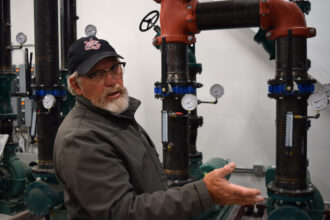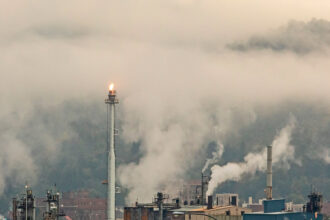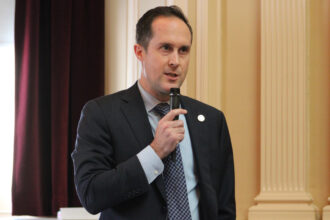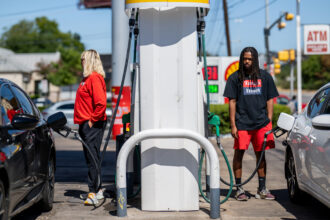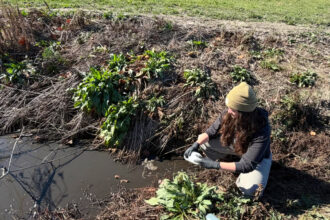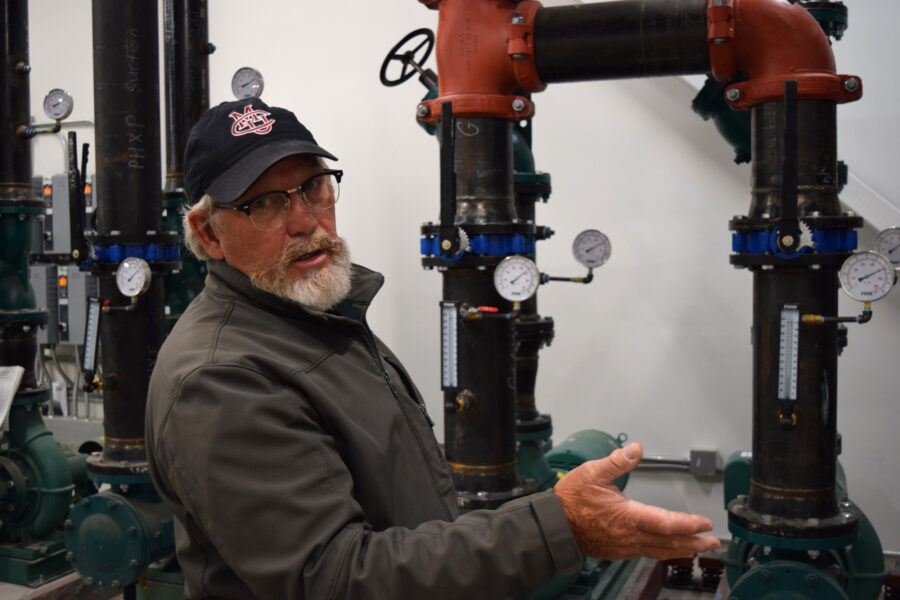Schism Remains as World Bank Votes on $3B Coal Plant Loan (Washington Post)
The World Bank will vote today on whether to lend $3 billion to South Africa’s state-owned utility to build a giant coal plant over the objections of environmentalists and trade unions who say the money should be spent on renewable energy projects.
UN Climate Talks Resume Friday with Scant Chance of 2010 Deal (Reuters)
Climate negotiators meet in Bonn on Friday for the first time since the fractious Copenhagen summit but with scant hopes of patching together a new legally binding U.N. deal in 2010.
Audit: MMS Hindered Offshore Drilling Risk Analyses in Alaska (Greenwire)
The Minerals Management Service has withheld information from regional staff in Alaska and has not had sufficient guidelines in place to analyze offshore drilling risks in the region, a government audit shows.
Nuclear Regulator Calls for Study of Cancer Risk Near Nuclear Plants (The Day)
A federal regulator is asking the National Academy of Sciences to take over a study on cancer risk around nuclear reactors in place of a previously hired government contractor.
Unilever Backtracks: May Buy Palm Oil from Sinar Mas (Mongabay)
Unilever is signaling that a $32.6 million contract, suspended over the Indonesian palm oil company’s involvement in rainforest and peatland destruction, may be back on the table, even as it touts its sustainability efforts to the public.
Paul Krugman on The Economics of Climate Change (New York Times)
Economist Paul Krugman walks readers through the economics of different approaches to dealing with climate change, the pros and cons and necessity of action.
Forestry to Have Big Role in U.S. Carbon Plan (Reuters)
Domestic deals to convert bare lands into forests and keep tree stands healthy could supply 60 percent of available offsets in any U.S. cap-and-trade plan on greenhouse gas emissions, a Barclays Capital analyst said.
Forest Epidemic Turns Into Energy Opportunity (CNet)
Fuel start-up Cobalt Technologies has figured out a way to use trees poisoned and killed by pine beetles to make biobutanol.
California Conservationists, Oil Company Strike Deal (AP)
Conservation groups unveiled a new version of an unusual agreement in which they will lobby for an oil company’s expansion of drilling off the coast of California in exchange for definite end dates to its local petroleum operations.
Dong Unveils Plan for Giant 400MW Offshore Wind Farm (Business Green)
Denmark’s position as one of the world’s leading wind energy markets was underlined this week as Dong Energy announced plans for a 400MW offshore wind farm and turbine manufacturer Vestas confirmed that it has secured a flurry of new orders in the past few days.
Ridge in Norway Could Become CO2 Storage Laboratory Site (Science Daily)
The Svelvik Ridge in southern Norway could quite literally become a green laboratory later this year: a unique tool for scientists who are developing the technology needed for secure underground storage of captured CO2.
Conductive Plastics Promise to Revolutionize Solar Cells (Business Green)
Solar panel components that can be printed using technology akin to an inkjet cartridge may not be too far away from commercialization, if a team of researchers at Princeton University have their way.
James Hansen Wins $100,000 Award for Climate Work (Reuters)
U.S. climate scientist James Hansen won a $100,000 environmental prize today for decades of work trying to alert politicians to the unsolved emergency of global warming.
2 More Glaciers Gone from Glacier National Park (AP)
Glacier National Park has lost two more of its namesake moving icefields to climate change, which is shrinking the rivers of ice until they grind to a halt, the U.S. Geological Survey said.
About This Story
Perhaps you noticed: This story, like all the news we publish, is free to read. That’s because Inside Climate News is a 501c3 nonprofit organization. We do not charge a subscription fee, lock our news behind a paywall, or clutter our website with ads. We make our news on climate and the environment freely available to you and anyone who wants it.
That’s not all. We also share our news for free with scores of other media organizations around the country. Many of them can’t afford to do environmental journalism of their own. We’ve built bureaus from coast to coast to report local stories, collaborate with local newsrooms and co-publish articles so that this vital work is shared as widely as possible.
Two of us launched ICN in 2007. Six years later we earned a Pulitzer Prize for National Reporting, and now we run the oldest and largest dedicated climate newsroom in the nation. We tell the story in all its complexity. We hold polluters accountable. We expose environmental injustice. We debunk misinformation. We scrutinize solutions and inspire action.
Donations from readers like you fund every aspect of what we do. If you don’t already, will you support our ongoing work, our reporting on the biggest crisis facing our planet, and help us reach even more readers in more places?
Please take a moment to make a tax-deductible donation. Every one of them makes a difference.
Thank you,




